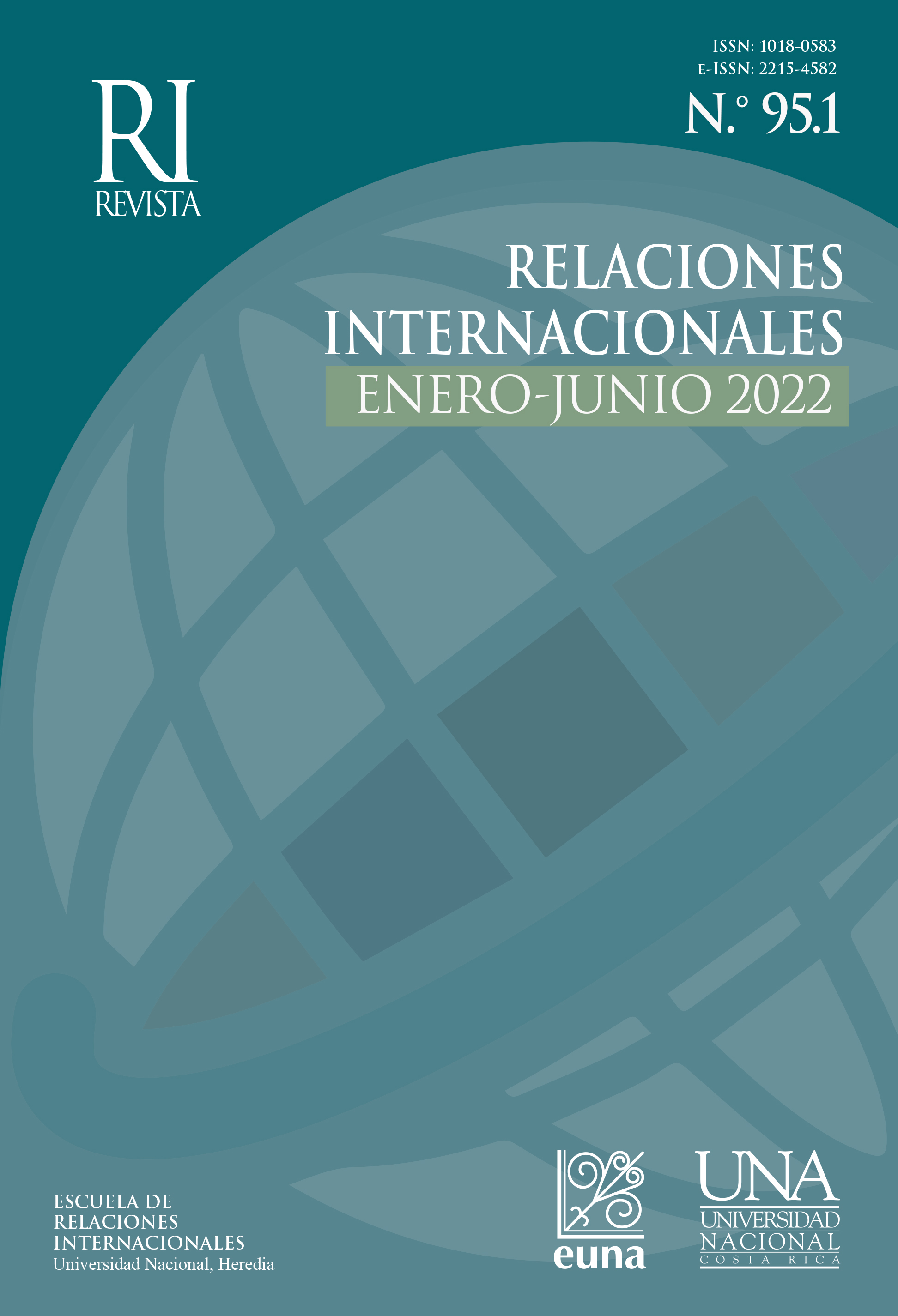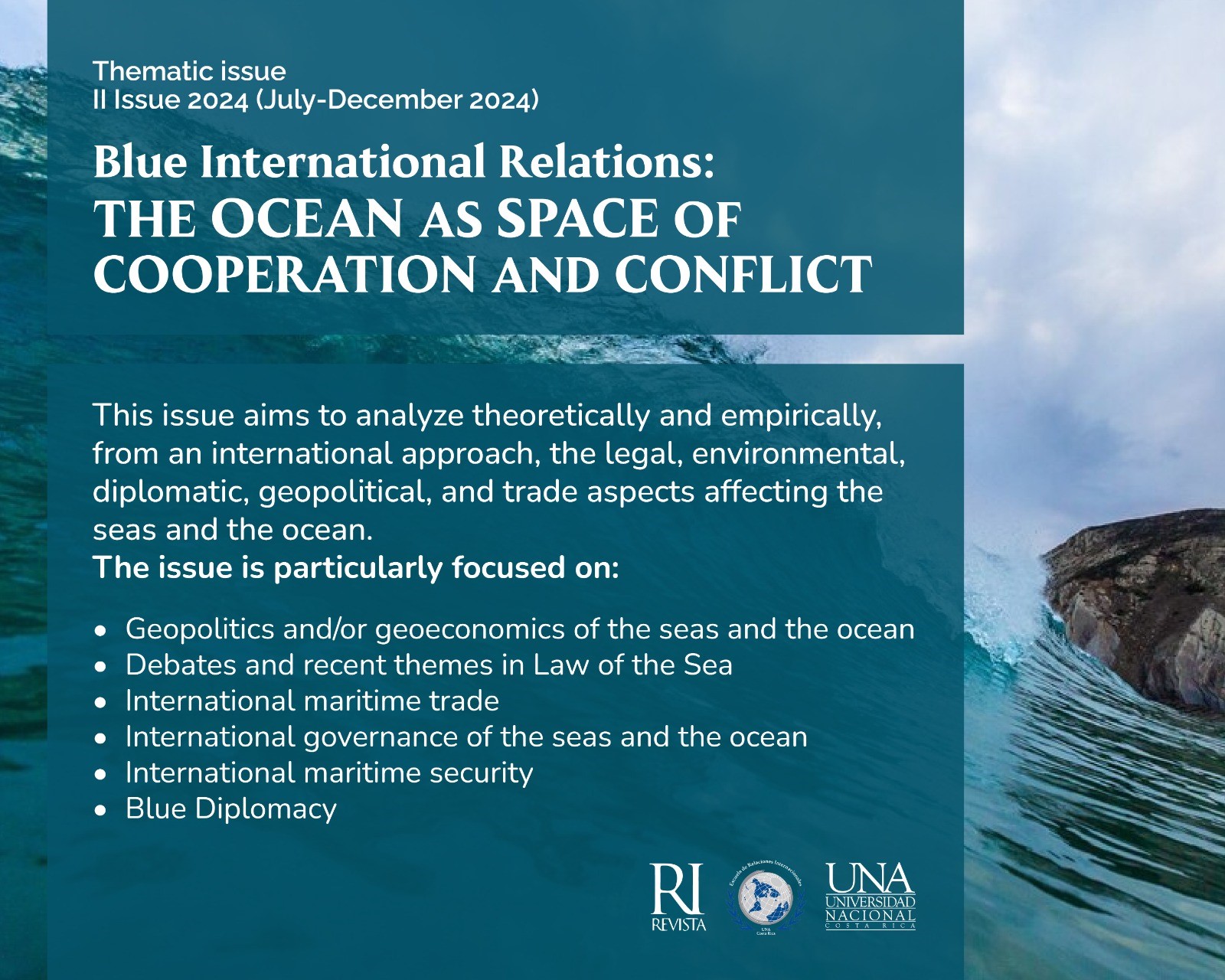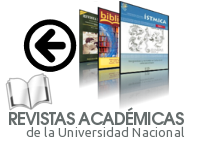Business and Climate Change: Internalization of Market Mechanisms in Brazilian Private Sector (2005-2015)
DOI:
https://doi.org/10.15359/ri.95-1.3Keywords:
Brazil, Clean Development Mechanism (CDM), climate change, Kyoto Protocol, private sector, Non-, Non-State ActorsAbstract
This article addressed the process of building normative fit between the international and domestic arenas on climate change in Brazil, based on the study of the Brazilian private sector’s internalization and localization of market mechanisms. The questions that guided this article are: under what conditions did the internalization of the relaxation mechanisms of the Kyoto Protocol took place in the Brazilian domestic context? How has this internalization influenced the identities and interests of the business sector in Brazil and contributed to strengthening a domestic climate change governance arena? To achieve this objective, process tracing was used as the primary methodological tool from a constructivist approach to International Relations to understand the dynamics of interaction between the global and the national from the perspective of non-state actors.
References
Bennett, A. (2010). Process Tracing and Causal Inference. In H. Brady, & D. Collier, Rethinking Social Inquiry: Diverse Tools, Shared Standards (pp. 207- 219). Lanham, MD: Rowman and Littlefield.
Bernstein, S. (2001). The compromise of liberal environmentalism. New York: Columbia University Press.
Bernstein, S., Betsill, M., & Hoffmann, M. (2010). A Tale of Two Copenhagens: Carbon Markets and Climate Governance. Millennium: Journal of International Studies, 161–173.
Bicudo, M. (. (2017). Fragmento de la entrevista con Marcos Bicudo (CEBDS), disponible en http://relatorio20anos.cebds.org/?a-evolucao-dos-debates. Última consulta en línea realizada: 26/4/2022. (CEBDS, Entrevistador)
Caetano C., C. (28 de septiembre de 2016). Fragmento de la entrevista realizada a Cinthia Caetano Carvalho en San Pablo, Brasil. (C. Kiessling, entrevistador).
Checkel, J. (2008). Constructivism and Foreign Policy. In T. Dunne, & S. Smith, Foreign Policy. Theories, Actors, Cases (pp. 71-82). New York: Oxford University Press.
Collier, D. (2011). Understanding Process Tracing. PS: Political Science and Politics, 823-830.
Comisión Mundial sobre el Medio Ambiente y el Desarrollo. (1987). Informe de la Comisión Mundial sobre el Medio Ambiente y el Desarrollo. “Nuestro futuro común”. https://www.ecominga.uqam.ca/PDF/BIBLIOGRAPHIE/
GUIDE_LECTURE_1/CMMAD-Informe-Comision-Brundtland-sobreMedio-Ambiente-Desarrollo.pdf
Cortell, A., & Davis, J. (2000). Understanding the Domestic Impact of International Norms: A Research Agenda. International Studies Association, 65-87.
Finnemore, M., & Sikkink, K. (1998). International Norm Dynamics and Political Change. International Organization, 887-917.
Flockhart, T. (2006). ‘Complex Socialization’: A Framework for the Study of State Socialization. European Journal of International Relations, 89-118.
Friberg, L. (2009). Varieties of Carbon Governance: The Clean Development Mechanism in Brazil- a Success Story Challenged. The Journal of Environment & Development, 395-424.
Girardin, O. (2013). Aspectos socioeconómicos y políticos del cambio climático. De la convención al Protocolo de Kioto, Tomo I (1990-2000). Trelew: Fundación Patagonia Tercer Milenio.
Kiessling, C. (2012). Las limitaciones de la COP 15 frente a la crisis climática global. Studia Politicae, 64-84.
Kiessling, C. (2018). Brazil, Foreign Policy and Climate Change (1992-2005). Contexto Internacional, 387-408.
Kiessling, C. (2019). Internalización del principio de las responsabilidades comunes, pero diferenciadas: interpretaciones desde la sociedad civil brasileña. Letras Verdes, 8-28.
Kiessling, C. (2021a). Internalizando la flexibilidad en la regulación del cambio climático: Un análisis del caso brasileño. Relaciones Internacionales. 21-42.
Kiessling, C. (2021b). Principio de las responsabilidades comunes pero diferenciadas, un análisis desde la perspectiva del sector privado en Brasil. Estudios Internacionales. 63-88
Kiessling, C., & Pacheco A., A. (2019). Escuela inglesa y gobernanza climática global: un diálogo necesario. Relaciones Internacionales, 53-72.
Klotz, A., & Lynch, C. (2007). Strategies for research in Constructivist International Relations. New York: M. E. Sharpe.
Park, J., Finger, M., & Conca, K. (2008). The Death of Rio Environmentalism. In M. Finger, K. Conca, & J. Park, The Crisis of Global Environmental Governance: Towards a New Political Economy of Sustainability (pp. 1-12). London/New York: Routledge.
Paterson, M., Hoffmann, M., Betsill, M., & Bernstein, S. (2014). The Micro Foundations of Policy Diffusion Toward Complex Global Governance: An Analysis of the Transnational Carbon Emission Trading Network. Comparative Political Studies, 420-449.
Peixoto B., J., Godfrid, J., & Stevenson, H. (2019). La difusión del concepto de servicios ecosistémicos en la Argentina: alcances y resistencias. Revista SAAP: Sociedad Argentina de Análisis Político, 313-340.
Pio, A. (29 de 9 de 2016). Fragmento de la entrevista realizada a Anícia Pio en San Pablo, Brasil. (C. Kiessling, entrevistador).
Rittl, C. (17 de 10 de 2016). Fragmento de la entrevista realizada a Carlos Rittl por videoconferencia. (C. Kiessling, entrevistador).
Vinicius C., M. (9 de 9 de 2016). Fragmento de la entrevista realizada a Marcos Vinicius C., M. por videoconferencia. (C. K. Kiessling, entrevistador).
Wendt, A. (1999). Social Theory of International Politics. Cambridge: Cambridge University Press.
Downloads
Published
How to Cite
Issue
Section
License

Revista de Relaciones Internacionales por Universidad Nacional de Costa Rica está bajo una Licencia Creative Commons Atribución-NoComercial-SinDerivar 4.0 Internacional








1.png)







3.png)
